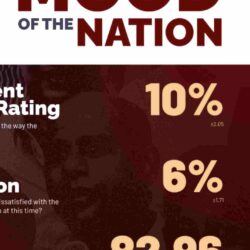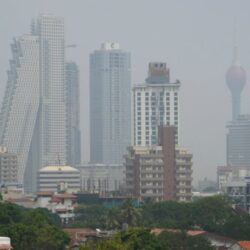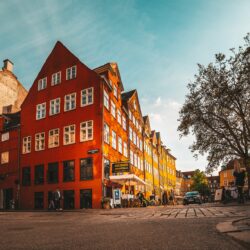Published in Dairy News Australia
Throughout this pandemic, governments across the world have launched an unprecedented number of stimulus efforts, aimed at keeping local economies afloat.
At large, these packages have helped to sustain consumer spending and keep commodity markets supported.
While temporary support measures in general have proved relatively effective at combatting broader economic turmoil, longer-term outcomes are less clear.
In some places, markets have become reliant on ongoing intervention and if government funding dries up, crisis may follow.
This is the case in Sri Lanka, where a growing food crisis currently is taking place.
Sri Lanka is experiencing a third COVID-19 wave and without tourism, the island has lost one of its largest income sources.
The country has been in severe debt for some time, which has been partially repaid via its foreign exchange reserve. Interest rates have been raised in an effort to mitigate inflation and further deprecation of the rupee, as the costs of imports climb.
Sri Lanka is now in a position where its remaining reserve can only support a few months of imports.
In response, the government has declared a state of emergency, allowing it to set retail prices for essential foods and seize stocks from traders. However, these economic and import challenges are only one part of the whole picture, with another threat to food availability looming in the background.
Since 1962, Sri Lanka’s government has operated a fertiliser subsidy, aimed to shelter farmers from any significant increases in global prices.
Over the next four decades this scheme adapted and evolved, with various breaks to alleviate budget pressures. Some research has illustrated that during these breaks, food production fluctuated in response.
In 2005, a fertiliser subsidy program was introduced for rice/paddy farmers to support self-sufficiency, fixing prices for various fertiliser types or in some cases providing the stock for free. For other farmers, stocks were offered at heavily discounted rates.
Consequently, these subsidies have supported the misuse of chemical fertilisers and created land reliant on this input. As a result, food production in Sri Lanka is closely linked to government agricultural policy.
In May 2021, the Sri Lankan Government announced it would restrict and ban imports of chemical fertilisers and agrochemicals (insecticides and herbicides). The policy change came from two positions: one of health and one of costs.
Reports of rising incidents of chronic kidney disease and cancer in agricultural areas set off alarms for residents and government officials alike.
While the link between fertiliser misuse and deteriorating health remains inconclusive, health care costs have reportedly been rising in recent years.
Similarly, the costs of importing product to supplement a fertiliser subsidy have been mounting in an already economically strained country.
This led to an overnight change in policy, and many expect domestic food production may decline as a result.
According to a recent survey conducted by Verité Research, more than 90 per cent of Sri Lankan farmers use chemical fertilisers in some capacity, with 76 per cent relying heavily on the input.
Close to 80 per cent of respondents supported the government’s vision to phase out chemical fertilisers but stated it would require more than a year to do so to avoid a drop in food production.
With 85 per cent of farmers expecting yields to decline in future harvests, this position comes from concerns of how to create, source or utilise non-chemical fertilisers.
The survey suggests every six in 10 farmers have not received any guidance on organic cultivation or have access to adequate knowledge to implement appropriate changes.
When the Sri Lankan Government announced the restrictions to chemical fertiliser, it also claimed the country would produce its own organic products. However, the appropriate infrastructure or capacity to manufacture quantities required is lacking.
Therefore, the government has allowed state fertiliser companies to tender for organic product to help fill requirements. These imports are expected to be very costly, undermining a key purpose of the fertiliser policy change.
Nevertheless, until domestic production capacity builds, imported fertiliser will be crucial to support domestic food production.
In Sri Lanka’s current position, it is safe to assume that a reduction in food production is an unwelcome but inevitable outcome of the cold turkey approach to restricting chemical fertiliser imports.
Various subsides over the past 60 years have produced an agricultural system dependent on the input and heavily reliant on government support.
So, while short term stimulus efforts can insulate a country from economic disaster, it appears the shield of market intervention can sometimes produce severe consequences longer term.
Last modified: April 2, 2024












